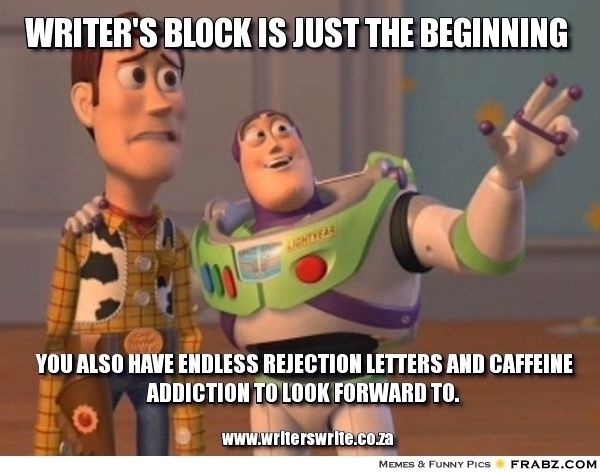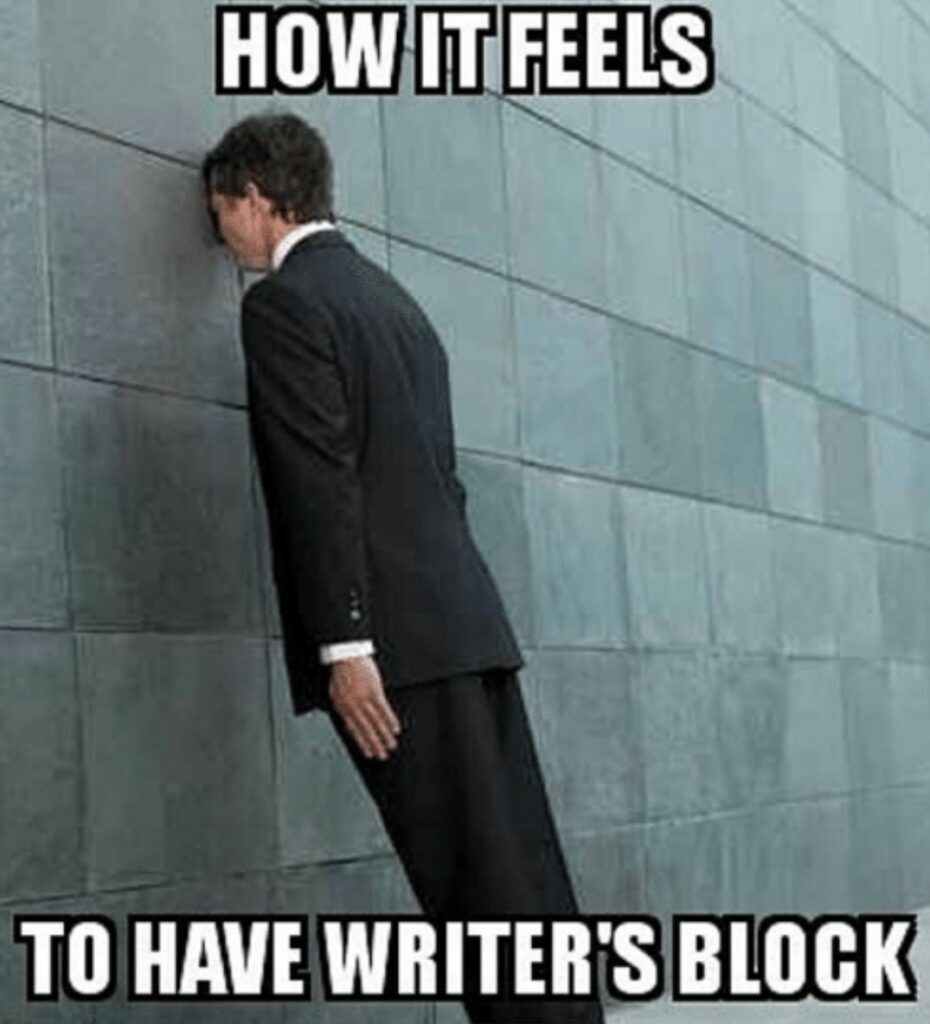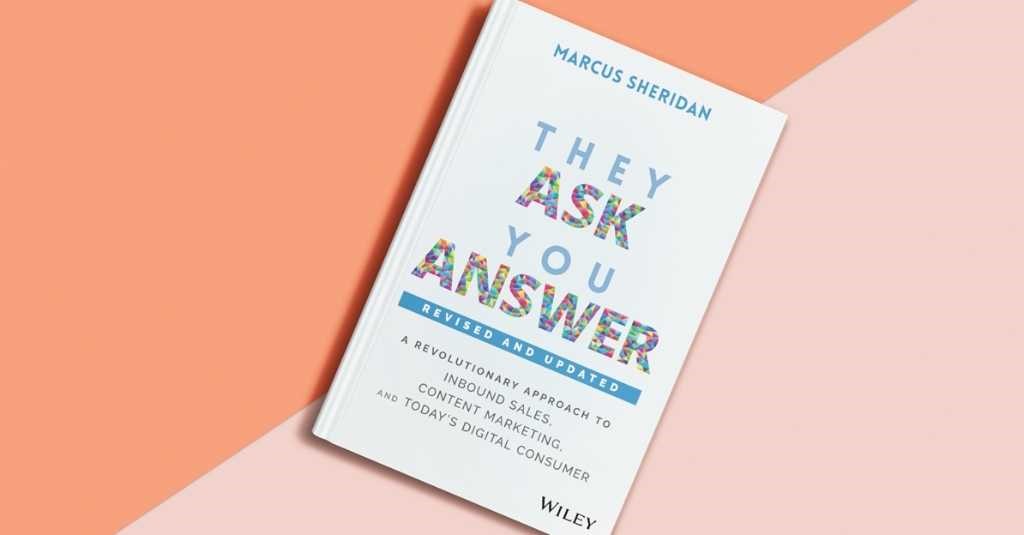Have you ever sat down to write and just couldn’t think of anything? It’s like your brain is stuck. If you write a lot of articles every week, you probably know what I’m talking about. It’s tough when you have a lot of ideas, but the words just won’t come out. Trust me, I’ve been there too. I’ve felt the sinking feeling of self-doubt and the anxiety that accompanies the unwelcome visitor known as writer’s block.

In this article, you will uncover the mysteries of writer’s block, the science behind it, and practical methods to not only combat it but also to harness your creativity effectively.
You’ll get a blend of personal experiences, backed by the expertise of a content manager (that’s me!) who’s penned over 140 articles (so far at RedPandas) and battled this invisible foe more times than I’d care to admit.
So, take a deep breath.
Together, we’ll journey through understanding this common challenge and arm you with actionable tools to conquer it.
The Science Behind Writer’s Block: Why it Happens

Everyone, at some point, feels stuck when they’re trying to write. But did you know there’s some science behind why this happens?
Your brain is a super powerful tool, but sometimes it gets tired or distracted. Think of it like a computer with too many tabs open. When this happens, it becomes harder to focus on just one thing, like writing an article.
There are parts of your brain that are responsible for creativity and thinking of new ideas. And then, there are other parts that criticise and judge what you come up with.
When you experience writer’s block, it’s like the judging part is working overtime and the creative part is taking a break.
Now, there are some triggers or things that make writer’s block more likely. For instance, being super tired, stressed, or anxious can make it harder for your brain to come up with ideas. And sometimes, if you’re trying too hard to make something perfect, it can be tough to write anything at all.
It’s natural to wonder if you’re the only one facing this or if something’s wrong. But remember, even the best writers face this block at times.
The key is to understand it, so you can find ways to overcome it.
Common Triggers of Writer’s Block & How to Address Them

Feeling stuck while writing isn’t just random. There are usual culprits or “triggers” that bring on this block. If you work to understand these triggers and the solutions to them, you may be able to solve your writer’s block right away.
Let’s dive into what these triggers are and how you can tackle them.
1. Perfectionism
You want every sentence to be flawless. But aiming for perfection from the start can stop you from even starting.
The Solution: The best way to combat this is to decide at the start that no one will read this article. Make an agreement with yourself that it’s okay to write this, finish it, and then not show it to anyone. This will allow you to let go of this idea of perfectionism because you won’t fear judgement.
2. Fear of Criticism
Worrying about what others will think or say about your writing can freeze you up.
The Solution: Remember, every piece of writing can be improved. Constructive feedback helps you grow. And, not everyone will agree – that’s okay. Even now, after publishing over 140 articles at RedPandas, I still receive a lot of feedback on my work. It’s inevitable, you need to accept that it’s going to happen regardless of how skilled you are.
3. Overthinking
You get lost in a sea of ideas, or you feel like nothing you think of is good enough. If you’re an overthinker, this one is a pain in the *ss.

The Solution: Sometimes, it’s best to just start writing anything, even if it’s off-topic. Getting words down can often lead the way to clearer thinking.
Pro Tip: We’ll delve into this later, but using AI to combat overthinking is a great solution. Ask ChatGPT to write your articles for you – it will help get you started when you can’t settle on an angle or an idea.
4. Burnout
Writing non-stop without breaks can lead to exhaustion, making it hard to come up with fresh ideas. I know more than anyone the feeling of being burnt out. You write, and write and write, and then write some more. When does it stop? This feeling leads to burn out, and I get it… I’ve been there.
The Solution: Take regular breaks. A short walk, some stretching, or even a quick nap can recharge your creative batteries. I like to separate my work with short 10-minute breaks. After writing for a few hours, when I know I need to do more writing, I’ll go out into the sun, or I’ll cuddle my dogs. It seems strange that a simple 10-minute break can solve this, but you’d be surprised at the effect it has on your brain.
5. Lack of Inspiration
Some days, you’re just not feeling it. I get it. You can’t be inspired all the time, right? But what if I told you inspiration can be cultivated?
The Solution: Find sources of inspiration. New experiences spark new ideas. This could be reading a book, listening to a podcast, or watching a documentary. Or, if you’re short on time, grab three articles, feed them to ChatGPT, and ask it to summarise the main points for you. Inspiration probably comes to you naturally because you’re a writer – but if you want to maximise your inspiration you need to proactively cultivate it.
6. Distractions
This was a big one for me when I first started writing. Phone buzzing, emails popping up, or a noisy environment can pull you away from your writing rhythm. Talking about noisy, you should hear my dogs… it’s like they know that I’m just getting on a roll when they decide to bark until the angels come down.
The Solution: Create a dedicated writing space. Turn off notifications and let others know you need some undisturbed time. If you really need to, change your environment. I found that regularly changing my writing space (i.e. my room, then my dining room, then the balcony) really helped with preventing distractions and staying inspired.
Understanding these triggers is the first step.
By recognising what’s holding you back, you can use these solutions to push past the block and get back to writing your best work.
9 Techniques to Overcome Writer’s Block

Knowing why you’re stuck is good, and having solutions to those triggers is great, but there are also other tools you can use to overcome writer’s block.
Here are some practical methods to help you when the words just aren’t flowing:
- Freewriting: Writing non-stop for a set period, like 10 minutes, without worrying about grammar or making sense. How it helps: It gets you into the flow of writing and can lead to unexpected ideas
- Change Your Environment: Moving to a different space or even just rearranging your current one. How it helps: A new environment can offer a fresh perspective and kick-start creativity
- Mind Mapping: Start with one main idea in the centre and branch out with related thoughts. How it helps: Visualising your ideas can help you see connections you might have missed
- Talk it Out: Discuss your topic with a friend or even talk to yourself out loud. How it helps: Saying your ideas can help clarify them and can lead to new insights
- Taking Short Breaks: Writing in short bursts, like 20 minutes, then take a 5-minute break. How it helps: It reduces pressure and can make writing feel more manageable
- Read: Reading is one of the most underrated ways to get rid of writer’s block. Reading leads to inspiration, creativity and new ideas.
- Listen to Music: The key is to listen to music that you don’t know the lyrics to (instrumental music, foreign music, or white noise works well). How it helps: Music can set a mood, inspire, and help concentrate. It’s important to pick music or sounds that you aren’t familiar with. This is because you don’t want to actually focus on and listen to the music, you just want it there as background noise to help get your mind moving. Sometimes, as strange as it sounds, having something present to distract you actually helps you laser focus on one thing.
- Physical Activity: Anything from a quick walk to a full workout. If you have writer’s block, stop, do 20 pushups and 20 squat jumps, and then come back to your computer. How it helps: Exercise boosts your mood and can help clear your mind
- Shock Your Body: If you have writer’s block, the problem is your state of mind. So, the real solution is to change your state. The best way to do this is to shock your body. For example, fill up your sink full of water and pop your head in for as long as humanly possible. Or tense every part of your body as hard as you can for ten seconds while holding your breath. Or take a cold shower. How it helps: Anything that shocks your body will change your state of mind. When your state of mind changes, so too does your ability to write
Remember, everyone is different. What works for one person might not work for another. The key is to try different techniques and find what’s best for you.
As you find what works, I recommend starting a “Change of State” Journal. In this, you list all of the things that worked for you, and whenever you get stuck, you come back to this list and try each item on the list until your writer’s block disappears.
Using AI to Overcome Writer’s Block
Artificial Intelligence (AI) isn’t just about replacing human creativity. It’s about making human work smarter and faster. In particular, you can use AI not just to create content, but also to generate ideas, inspire yourself, or plan your writing.
Let’s take a look at how you can use AI to help you overcome writer’s block.
Using ChatGPT to Inspire You

When you’re stuck on an article, the best thing you can do is ask ChatGPT to write up a plan for the article with a table of contents included.
Then, you can ask ChatGPT to write different parts of the article, depending on where you’re stuck.
From there, you can take ChatGPT’s version and rewrite it based on your own human creativity.
Here’s an example of a conversation that you could reuse with your own topic in mind:
The flow of the conversation went like this:
- I provided ChatGPT with an explanation of what an article plan is
- After it responded and acknowledged it understood, I then asked ChatGPT to create a plan for my article
- Then, after it provided me with a plan, I asked it to write the introduction for the same article, using the plan it had given me
From there, if I wanted to, I could ask it to write any section of the blog article, and while it might not give me something perfect, it does help me get started, which is the biggest hindrance for a writer experiencing writer’s block.
But a word to the wise: while AI offers brilliant assistance, it doesn’t replace the authentic human touch. It’s best viewed as your trusty sidekick, not the hero of your writing journey.
Embracing the Journey of Writing
Writing, at its heart, is a journey. Like any voyage, it comes with its share of smooth paths, challenging terrains, and unexpected roadblocks. Writer’s block, as intimidating as it might seem, is just a small hiccup in this incredible journey.
Writer’s block is not a sign of inadequacy or a lack of talent, but rather a natural part of the creative process.
As content managers and writers, our primary goal is to communicate ideas, share stories, and inspire readers. The pressure to churn out articles consistently can sometimes overshadow the joy of creation.
But it’s crucial to remember that every writer, even the most accomplished ones, have faced and overcome similar challenges.
As you continue on your writing journey, embrace every part of it – the highs, the lows, the flow, and the blocks. Each experience is a lesson, every challenge an opportunity for growth. Keep the passion alive, trust the process, and remember: every word you write is a step forward.
Once you’ve overcome writer’s block, it’s important to make sure you’re writing articles that rank and generate leads. Check out our guide on how to write articles that rank and generate leads.












